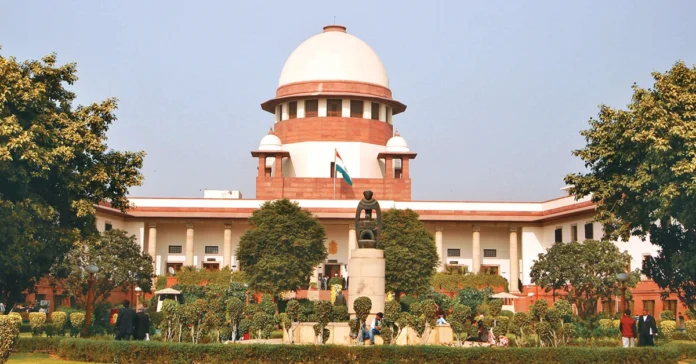The Supreme Court of India, in its recent order, has declined to consider the plea filed by P. Varavara Rao, an 85-year-old poet and activist facing prosecution under the Unlawful Activities (Prevention) Act in the Bhima Koregaon case, seeking modification of one of the conditions imposed upon his medical bail.
The condition in question mandates that Rao must obtain prior permission from the Special National Investigation Agency (NIA) Court before leaving the territorial limits of Greater Mumbai. A bench comprising Justices J. K. Maheshwari and Vijay Bishnoi dismissed the application after brief submissions advanced by Senior Advocate Anand Grover on behalf of the petitioner. The plea was ultimately withdrawn.
Counsel for Rao pressed that the restriction had become increasingly onerous given the advanced age and frail health of the accused. It was submitted that Rao has been on bail for nearly four years, during which his medical condition has continued to deteriorate. Earlier, his wife had been providing him with care, but she has since relocated permanently to Hyderabad, thereby depriving him of essential familial support in Mumbai.
Counsel further drew the Court’s attention to the fact that Rao had recently experienced episodes of dizziness, necessitating close and regular medical attention. It was also pointed out that while Rao draws a pension of ₹50,000 per month, his medical and associated expenses amount to nearly ₹76,000 per month, thereby placing him under financial strain. Importantly, the counsel emphasized that Rao is entitled to free medical services in his home State of Telangana, while in Greater Mumbai he is compelled to incur significant medical expenses, aggravating his hardship.
The Bench, however, was not inclined to grant any modification. Justice Maheshwari observed during the hearing that it is the responsibility of the State to provide for the medical needs of an undertrial, and noted that the petitioner could always approach the appropriate forum in the future if circumstances warranted a similar request. However, the Court was firm in its refusal to record any such liberty in its present order, thereby leaving the condition intact.
The proceedings in the underlying prosecution remain at a nascent stage. The matter is still at the stage contemplated under Section 207 of the Code of Criminal Procedure, relating to the supply of documents to the accused. The trial has yet to commence, and no formal charges have been framed thus far. Against this backdrop, Rao sought a relaxation of the bail condition that effectively confines him to the jurisdiction of Greater Mumbai.
It is pertinent to recall that Rao had been granted bail on medical grounds by a three-judge bench headed by then Chief Justice U. U. Lalit in August 2022. The Court, while exercising its jurisdiction, took into account the petitioner’s advanced age, his multiple ailments, and the substantial period of approximately two and a half years he had already undergone in custody. The Court had also noted that the progress of the trial was likely to be protracted, and therefore, in the interests of justice, bail was deemed appropriate.
However, the grant of bail was accompanied by stringent conditions. These included a prohibition on leaving Greater Mumbai without the prior permission of the Special Court, an obligation not to misuse the liberty conferred, an undertaking not to interfere with witnesses or impede the investigation in any manner, and permission to avail of medical treatment of his choice provided that the investigating agency was duly informed of such developments.
The present application filed by Rao specifically sought the modification of clause 18(b)(i) of that order, which restricts his movement outside Greater Mumbai. The Supreme Court, however, has declined to interfere, thereby maintaining the original condition as imposed in 2022. The refusal underscores the Court’s continuing caution in balancing the personal liberty of the accused with the gravity of the charges under the UAPA, as well as the broader interest of ensuring that the course of the trial remains unaffected.


